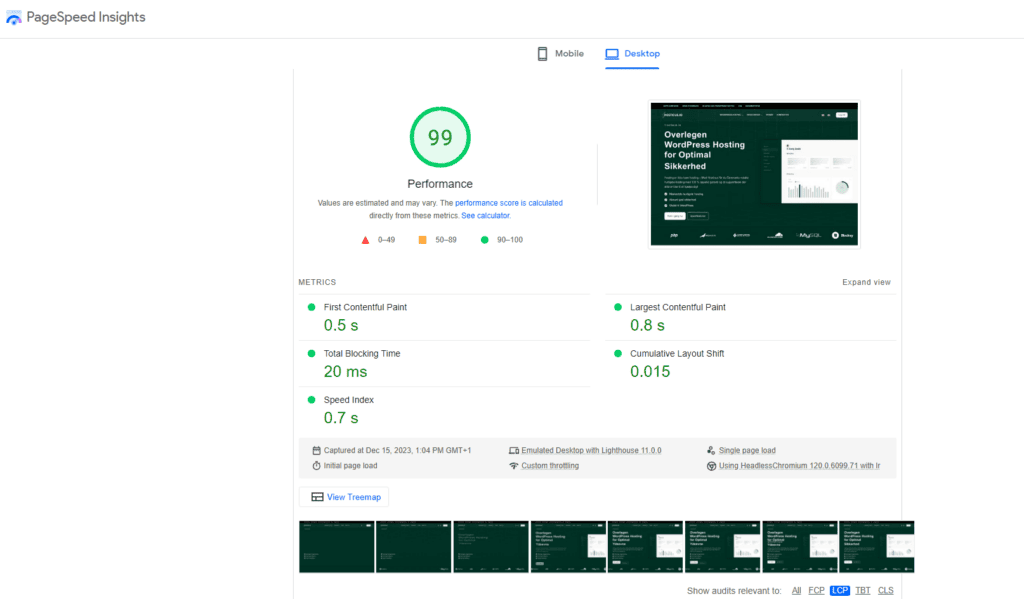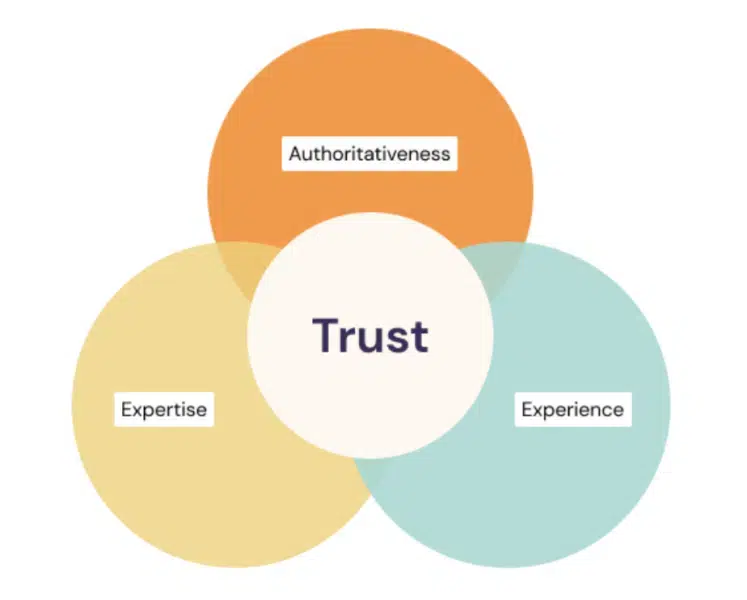2024 SEO Trends and Strategies for WordPress sites

Welcome to 2024! SEO, or how we get our WordPress sites to show up in Google, is changing. Google, being the dominant search engine, continuously updates its algorithms. These updates can significantly impact search rankings and the visibility of your WordPress website or Woocommerce Shop. To stay relevant in search results, SEO professionals and website owners must stay informed about algorithm changes and adapt their strategies accordingly.
This complete guide is all about the new SEO rules and trends for this year. A lot of websites use WordPress, especially ones that sell things. To stay ahead, you need to know these new rules and make your content and products descriptions follow these trends.
Table Of Content
General SEO and Rules for WordPress
What’s SEO?
SEO makes websites show up higher on Google. WordPress is really good for SEO, whether you’re new or know a lot about it. Here’s why:
- WordPress works well with top SEO tools.
- It makes sitemaps to help Google find your site faster.
- It lets you make web addresses that match your content, which helps people and Google understand your site better.
Keywords: The Starting Point
Great SEO starts with finding the right words that people use to search. You should know how your audience looks things up. Do they ask questions or just use short phrases? Look at what words your competitors are using too.
Try to find gaps in keywords where your competitors do better. This can show you new words to use to improve your rank.
Building a Good Website Structure
How your WordPress site is set up matters a lot for SEO in 2024. Here are some tips:
- If you have a blog with many writers or topics, don’t let Google index every page to avoid repeating content.
- Add short, clear descriptions and names (using keywords) to all your images. This helps Google and makes your site easier to use.
- Group similar pages under main topics. This keeps things organized and stops repeated content.
Keep your themes and plugins updated. Old ones can slow down your site and be risky.
Basics of Good WordPress SEO
WordPress is great for SEO because of its many tools and features. To do really well, you need to understand these parts:
- On-page factors (like how your site and content are set up).
- Off-page factors (like links from other sites).
- Finding the right keywords.
- How your site is built.
Good SEO means:
- Making content that answers what people are searching for.
- Making your site easy to get around.
- Letting Google see your site (make sure you don’t block it in your settings).
Why SEO Matters
SEO helps your site show up higher on Google and get seen more. When done right, it makes your site more popular and trusted. Good SEO is about making your site easy for Google and helpful for people.
Types of SEO
There are different kinds of SEO:
- Technical SEO: This is about making your site easy for Google to read and list.
- On-Page SEO: This is about making each page on your site better, like improving content and pictures.
- Off-Page SEO: This is about things outside your site, like getting links from other sites or using social media.
Other types include SEO for content, local areas, mobiles, and online stores.
Crafting Content That Ranks High in 2024
1. The Importance of High-Quality Content in WordPress SEO
Content quality is paramount in WordPress SEO as we head into 2024. With innovative features like Google Snippets and rapid web-crawling apps, there’s a significant opportunity for WordPress sites to stand out. The key is to create content that is not just reliable and authoritative but also trustworthy, positioning your site as a go-to source in your niche.
2. Linking Strategies for Enhanced SEO
Linking remains an integral part of SEO strategy. Internal linking helps visitors navigate your website more effectively, aiding in conversion while also clarifying your site’s structure for search engines. External links, on the other hand, are invaluable for obtaining backlinks from authoritative websites, thereby driving more traffic to your site and elevating your content’s reputation. It’s also crucial to link out to reputable sites in your posts, using statistics and citations to back up your claims. Additionally, keeping your site free of broken links is an essential SEO practice. Repairing broken links and, if necessary, setting up redirects can significantly improve your site’s domain authority.
3. Creating Engaging and Optimized Content
Creating content that ranks well involves a blend of strategic planning and creative execution. Start by defining your content’s goal and understanding your target audience, tailoring your approach to their interests and needs. Extensive research from credible sources adds depth and reliability, while thorough fact-checking ensures accuracy.
A well-structured outline is vital to organize your thoughts and present them coherently. Writing should be engaging and informative, starting with a compelling introduction and utilizing a mix of short paragraphs, bullet points, and subheadings for better readability. Incorporating multimedia elements like images, videos, and charts enhances the appeal and understanding of your content.
SEO optimization is a critical step, where keywords are integrated naturally into your content. Tools like keyword planners can help in identifying relevant search terms. After writing, rigorous editing and proofreading are necessary to maintain high-quality standards.
The latest SEO trends for wordpress in 2024
In 2024, one of the key trends for WordPress SEO is the emphasis on User Experience (UX) and Core Web Vitals, which are crucial metrics reflecting the overall user experience of a website. These vitals, comprising loading speed, interactivity, and layout stability, have a direct impact on both UX and SEO.
Trend 1. UX and Core Web Vitals: Enhancing Website Performance
- Introduction to Core Web Vitals:
- Major Update in 2024 – INP Replacing FID:
- Strategies for Optimizing Core Web Vitals:
- Optimize Loading Speed: Compress images and leverage browser caching to speed up site loading.
- Improve Interactivity: Emphasize responsive design and reduce JavaScript execution times to enhance user interactivity.
- Ensure Visual Stability: Set image and video dimensions to prevent layout shifts, providing a stable visual experience.
- Preparing for INP:

Trend 2. Mobile-First Indexing: Essential for 2024’s SEO
In 2024, one of the critical SEO trends for WordPress sites is mobile-first indexing, which is increasingly important as most internet traffic now originates from mobile devices. Here’s a detailed look at optimizing your WordPress site for mobile-first indexing:
- Responsive Design: Responsive design is non-negotiable for websites aiming for high SEO performance in 2024. It ensures your site adapts to various screen sizes and devices, catering to mobile-first indexing while enhancing the overall user experience.
- Optimize for Page Speed on Mobile: Mobile users expect quick loading times. Compressing images, leveraging browser caching, and minimizing unnecessary scripts can significantly improve the mobile experience. Fast loading times on mobile are crucial for keeping users engaged and reducing bounce rates.
- Prioritize Mobile Content and UX: On mobile devices, content should be concise, engaging, and easily digestible. Ensuring smooth user experience with intuitive navigation and mobile-friendly interactions is key. This approach makes your content more appealing to mobile users and enhances its effectiveness for SEO.
- Structured Data for Mobile Friendliness: Implementing structured data helps signal to search engines that your website is optimized for mobile users. This not only aids in mobile-first indexing but also improves the visibility of rich snippets in mobile search results, enhancing the findability and attractiveness of your content on mobile devices.
- Voice Search Integration: As voice-activated devices become more prevalent, optimizing for voice search is becoming integral. Mobile-first indexing is likely to incorporate factors catering to voice-activated queries, which could be a significant aspect of search behavior in the future.
- Accelerated Mobile Pages (AMP) Evolution: Google’s emphasis on page speed suggests a continued evolution of Accelerated Mobile Pages (AMP). Incorporating AMP into your mobile strategy can future-proof your website for upcoming mobile-first indexing updates, ensuring faster load times and a smoother mobile experience.
- Personalization in Mobile Search Results: Personalization in search results is expected to increase. Mobile-first indexing might evolve to consider individual user behaviors and preferences, leading to hyper-personalized search results tailored to mobile users.
By focusing on these aspects, WordPress sites can optimize for mobile-first indexing, ensuring a better ranking in search engine results and providing an enhanced user experience for mobile visitors. This strategy is essential for any WordPress site looking to succeed in the increasingly mobile-dominated online landscape of 2024.
Trend 3. E-E-A-T (Experience, Expertise, Authoritativeness, Trustworthiness) Algorithm

In 2024, Google’s E-E-A-T (Experience, Expertise, Authoritativeness, Trustworthiness) algorithm continues to be a pivotal factor in SEO, particularly for WordPress sites. Here’s an overview of the key aspects to focus on:
- E-E-A-T Introduction: Google has enhanced the E-A-T algorithm by adding an extra ‘E’ for Experience, emphasizing the content creator’s first-hand experience in the topic. This change reflects Google’s focus on delivering content that is not only informative but also comes from a credible source of experience.
- Evaluating E-E-A-T: Google’s Quality Rater Guidelines now include considerations for evaluating the reputation of websites and their content creators, highlighting the importance of trustworthy content. This underscores the need for website owners to establish and maintain a solid reputation online.
- Content Quality and Originality: The quality of the main content (MC) is now assessed with a focus on effort, originality, and talent or skill, moving away from the emphasis on time spent. This shift towards originality and effort demonstrates Google’s priority for unique and well-crafted content.
- Transparency and Trust: For evaluating trust, one of the most critical aspects of E-E-A-T, raters are encouraged to consider the website’s self-description, third-party reviews or references, and visible evidence of expertise. This implies that having clear, honest, and reliable information on your site can significantly boost its perceived trustworthiness.
- YMYL Topics and Expertise: For Your Money Your Life (YMYL) topics, Google differentiates when experience or expertise is required. This change indicates that content based on personal experience can be trustworthy in specific contexts, especially when the experience is directly relevant to the topic.
- Harmful Content Considerations: Google continues to define what constitutes harmful content, drawing a clear line between free speech and harmful misinformation. This is particularly relevant in the context of YMYL topics, where the potential for harm is more significant.
In light of these updates, WordPress site owners should focus on creating content that is not only informative and well-researched but also demonstrates the authors’ expertise and experience. Additionally, maintaining a transparent and trustworthy online presence is more crucial than ever for achieving SEO success in 2024.
Trend 4. AI and machine learning for SEO
AI and machine learning are revolutionizing SEO and online interactions. To stay ahead in 2024, consider these strategies:
- Embrace AI for SEO and Content: Utilize AI tools for keyword research, SEO analysis, and content creation. These tools can identify high-performing keywords, develop data-driven content strategies, and refine your SEO practices for greater effectiveness.
- Implement AI Chatbots: AI chatbots provide real-time support, engaging visitors with immediate responses and personalized interactions. This enhances user experience and supports your SEO efforts by keeping users engaged on your site.
- Leverage Machine Learning for Tailored Content: Machine learning can analyze user behavior, allowing for the creation of content that is more personalized and relevant to your audience. This approach caters to user intent and can significantly improve user engagement and SEO performance.
By integrating these AI and machine learning techniques, you can better understand and anticipate user needs, creating stronger connections and driving growth for your WordPress site.
Trend 5. Optimizing Local WordPress SEO
For businesses targeting specific geographic areas. It’s particularly crucial for responding to ‘near me’ queries and capturing a local audience. The integration of local SEO into your WordPress strategy is not just recommended; it’s essential. With a significant portion of online shoppers searching for nearby businesses, ignoring local SEO could mean missing out on a substantial market segment.
Why Local SEO Matters for Your WordPress Site
Local and global SEO may seem different, but they complement each other. Excelling in local SEO can boost your global online presence and vice versa, driving both online and physical traffic to your business. Here’s how to make the most of local SEO for your WordPress site:
- Establish a Google Business Profile (GBP):
- Your journey to local SEO dominance begins with a Google Business Profile.
- GBP lets you manage your business’s presence on Google, including interactions with customers, posting images and updates, and collecting reviews.
- Keep Your GBP Information Current:
- Regularly update your GBP with accurate information about your business.
- This includes your WordPress site link, contact details, business hours, and descriptions of your offerings.
- Timely updates for any changes in business hours or temporary closures are crucial.
- Focus on Localized Keywords:
- Tailor your 2024 SEO strategy to include local keywords.
- Use terms that combine your service or product with a city or region name. For a business like Hostious, using specific localized terms such as “affordable hosting solutions in Copenhagen” or “Denmark’s top web hosting services” can significantly enhance your visibility in local searches.
- This approach helps your business rank higher in local search queries.
- Increase Local Visibility:
- Get your business listed in local directories and on social media platforms.
- These listings not only build local authority with Google but also enhance your visibility.
- Aim to feature in local listicles or articles, such as “Denmark’s Leading Hosting Providers.”
- Establish connections with local editors and websites to get your business featured.
Local SEO is more than a trend; it’s a powerful tool for businesses looking to make an impact in their community. By incorporating these strategies into your WordPress SEO plan for 2024, you can significantly improve your local online presence and attract more customers from your area.
Trend 6. Voice search optimization
oice search optimization is increasingly vital due to the growing use of smart speakers and virtual assistants. To optimize for voice search in 2024, consider these strategies:
- Featured Snippets: Aim for the “position zero” in search results. Tailor your content to succinctly answer common voice queries.
- Natural Language Content: Create content that reflects natural, conversational language. Voice search queries tend to be more conversational and longer than text-based queries.
- Local SEO Optimization: Many voice searches have local intent. Optimize your content and listings to cater to local queries, such as “Where’s the nearest coffee shop?”
- Schema Markup: Implement schema markup to give search engines contextual information, boosting your chances of appearing in voice search results.
- Mobile Optimization: Ensure your website is mobile-responsive, as a significant number of voice searches are conducted on mobile devices.
- Improve Page Speed: Voice search favors fast-loading pages, so optimizing your website’s loading speed is crucial.
- Structured Data: Use structured data to present clear, organized information that is easily accessible by voice assistants.
- Contextual Content: Develop content that anticipates and answers follow-up questions, as voice search users often seek comprehensive information.
- Long-Tail Keywords: Incorporate long-tail, conversational keywords into your content to align with voice search patterns.
- Local Business Listings Optimization: Ensure your local business listings, like Google My Business, are optimized and up-to-date to improve visibility in local voice searches.
Final words : 2024 SEO Trends and Strategies for WordPress Sites
The SEO landscape in 2024 is shaped by advancements in AI and machine learning, the growing importance of mobile-first indexing, and the evolution of voice search. Google’s emphasis on E-E-A-T (Experience, Expertise, Authoritativeness, Trustworthiness) underlines the need for high-quality, credible content. Embracing these trends requires a blend of technological savvy, a deep understanding of user behavior, and a commitment to creating valuable, user-centric content.
Frequently Asked Questions About WordPress SEO in 2024
1. Will SEO still be relevant in 2024?
Yes, SEO will remain relevant and critical for digital marketing in 2024. The evolving nature of search engine algorithms and user behaviors will continue to influence SEO practices. While the core principle of SEO – optimizing content to be easily found and helpful to users – remains constant, the strategies and tactics will adapt to emerging technologies and changing user preferences. This continuous evolution means that staying updated with the latest SEO trends and adapting your WordPress site accordingly will be essential for maintaining online visibility and relevance
2. What are the best practices for incorporating AI and machine learning into my WordPress SEO strategy?
Leverage AI tools for keyword research, content creation, and SEO analysis to gain insights into user behavior and preferences. AI can help identify trends and optimize content more efficiently. Use machine learning to analyze user data and personalize the user experience, such as through customized content recommendations or adaptive website layouts.
3. What is the significance of voice search optimization in 2024?
Voice search optimization is becoming increasingly important due to the rise of smart speakers and virtual assistants. Users are shifting towards using natural language and full sentences for searches. To optimize for voice search, focus on creating content that is conversational and answers questions directly. Utilize long-tail keywords that align with natural speech patterns and structure your content, particularly FAQs, to provide quick and concise answers to common queries. This approach is essential for capturing traffic from voice searches, as voice assistants often pull answers from the top search results, especially featured snippets
4. How does mobile-first indexing affect SEO strategies?
With Google’s mobile-first indexing, the mobile version of a website’s content is primarily used for indexing and ranking. This shift underscores the importance of ensuring that your WordPress site is not only mobile-friendly but also optimized for the best possible mobile user experience. This includes aspects like responsive design, fast page loading times, and content that is easily navigable and readable on mobile devices. Prioritizing mobile optimization in your SEO strategy is essential for achieving high search engine rankings and catering to the growing number of users who access the internet primarily via mobile devices
5. What does E-E-A-T mean for SEO in 2024?
E-E-A-T stands for Experience, Expertise, Authoritativeness, and Trustworthiness. It’s a Google framework for assessing content quality. The addition of ‘Experience’ to E-A-T highlights the value of content created from first-hand knowledge. Trust, the central element, focuses on the credibility of the content. To optimize for E-E-A-T, ensure your content is well-researched, authored by knowledgeable individuals, and backed by factual data. Highlighting the qualifications and experience of content creators enhances the authoritativeness of your site. Providing transparent information and citing reputable sources can further establish trust and reliability, which are crucial for high search engine rankings, especially for YMYL (Your Money Your Life) topics







